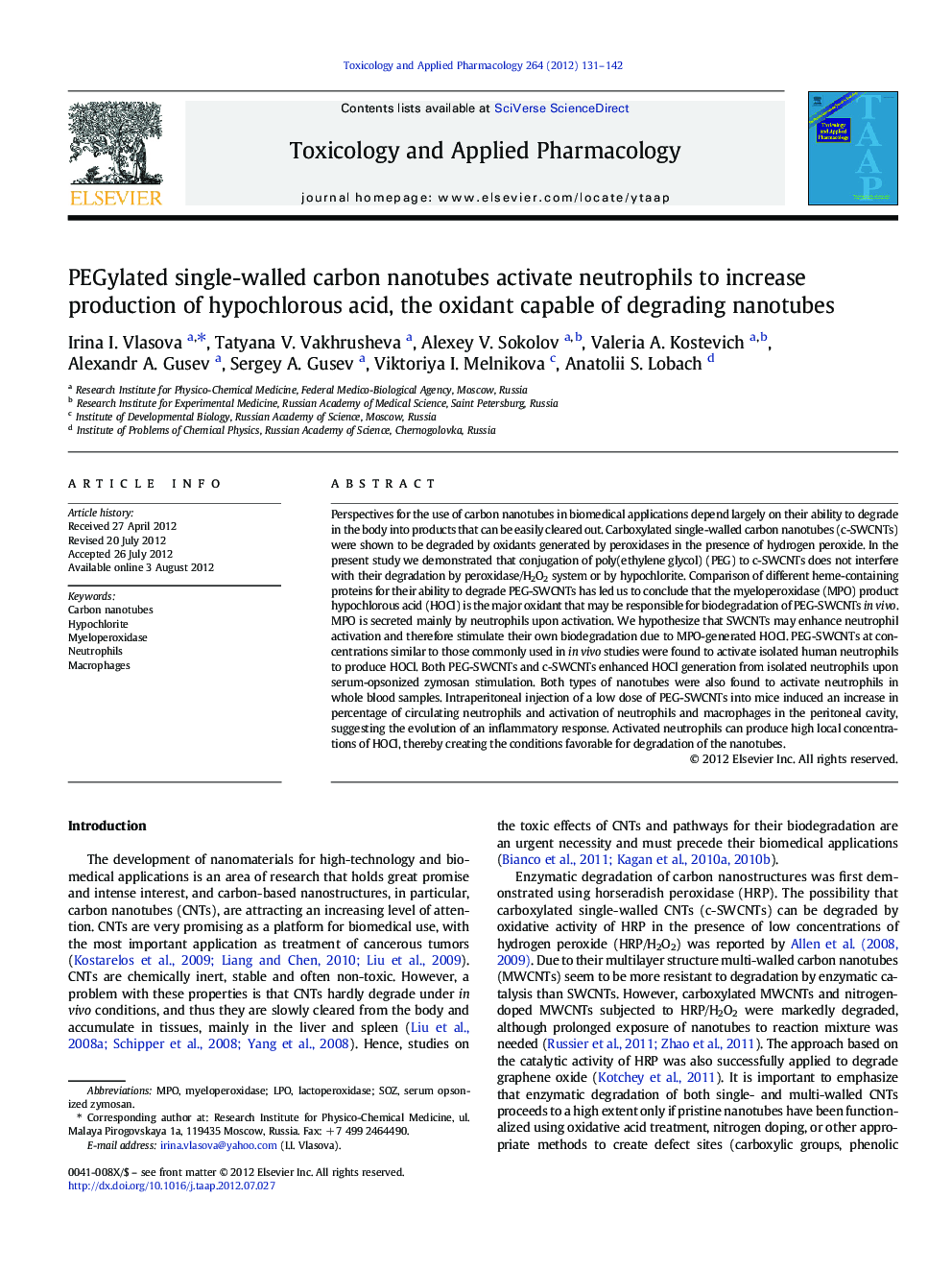| کد مقاله | کد نشریه | سال انتشار | مقاله انگلیسی | نسخه تمام متن |
|---|---|---|---|---|
| 2569142 | 1128512 | 2012 | 12 صفحه PDF | دانلود رایگان |

Perspectives for the use of carbon nanotubes in biomedical applications depend largely on their ability to degrade in the body into products that can be easily cleared out. Carboxylated single-walled carbon nanotubes (c-SWCNTs) were shown to be degraded by oxidants generated by peroxidases in the presence of hydrogen peroxide. In the present study we demonstrated that conjugation of poly(ethylene glycol) (PEG) to c-SWCNTs does not interfere with their degradation by peroxidase/H2O2 system or by hypochlorite. Comparison of different heme-containing proteins for their ability to degrade PEG-SWCNTs has led us to conclude that the myeloperoxidase (MPO) product hypochlorous acid (HOCl) is the major oxidant that may be responsible for biodegradation of PEG-SWCNTs in vivo. MPO is secreted mainly by neutrophils upon activation. We hypothesize that SWCNTs may enhance neutrophil activation and therefore stimulate their own biodegradation due to MPO-generated HOCl. PEG-SWCNTs at concentrations similar to those commonly used in in vivo studies were found to activate isolated human neutrophils to produce HOCl. Both PEG-SWCNTs and c-SWCNTs enhanced HOCl generation from isolated neutrophils upon serum-opsonized zymosan stimulation. Both types of nanotubes were also found to activate neutrophils in whole blood samples. Intraperitoneal injection of a low dose of PEG-SWCNTs into mice induced an increase in percentage of circulating neutrophils and activation of neutrophils and macrophages in the peritoneal cavity, suggesting the evolution of an inflammatory response. Activated neutrophils can produce high local concentrations of HOCl, thereby creating the conditions favorable for degradation of the nanotubes.
► Myeloperoxidase (MPO) product hypochlorous acid is able to degrade CNTs.
► PEGylated SWCNTs stimulate isolated neutrophils to produce hypochlorous acid.
► SWCNTs are capable of activating neutrophils in blood samples.
► Activation of neutrophils in blood causes an increase in plasma MPO concentration.
► Intraperitoneal injection of PEG-SWCNTs in mice induces an inflammatory response.
Journal: Toxicology and Applied Pharmacology - Volume 264, Issue 1, 1 October 2012, Pages 131–142